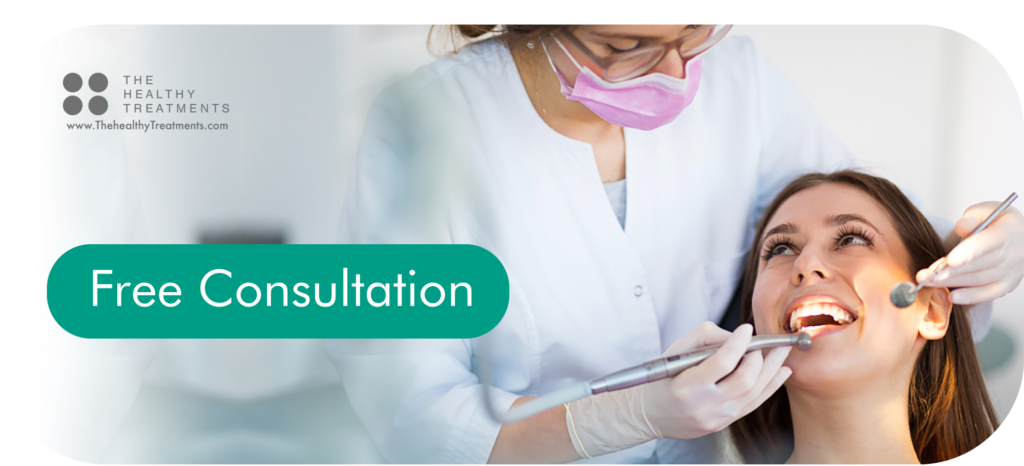Maximizing Your Tax Return 2025 : Affordable Dental Treatment in...
Leer Más

Maintaining robust oral health, including healthy teeth and gums, facilitates optimal dietary intake, thus contributing to overall wellness. Several pathologies could compromise oral hygiene with braces, but with diligent care, oral structures can remain sturdy even with advancing age. Nonetheless, oral health extends beyond just the prevention of caries and periodontal diseases. Current research delineates a significant correlation between a person’s oral health status and systemic health, prompting medical professionals to recognize oral health issues as a global health concern. Neglected oral conditions such as dental decay or periodontal disease can manifest as pain, decreased self-esteem, and eventual tooth loss. In addition, these complications may precipitate malnutrition and impairments in speech and create obstacles in an individual’s professional, academic, or personal life. This blog will elucidate several dental care recommendations to promote oral health.
Attaining optimal oral health is a lifelong commitment. Regardless of receiving compliments about the aesthetic appeal of your teeth, it is imperative to actively engage in preventative measures on a daily basis to sustain their health and avoid potential complications. This responsibility includes choosing appropriate oral hygiene products and cultivating conscientious daily habits. The subsequent sections of this document will provide additional insights into the importance of dental care practices for oral hygiene for elderly with no teeth.
Numerous individuals who practice regular tooth brushing often overlook the importance of dental flossing. Dental flossing serves a purpose beyond merely dislodging small food particles, such as remnants of broccoli, trapped interdentally. It plays an integral role in promoting gum health by stimulating the gingival tissues, mitigating the accumulation of dental plaque, and subsequently aiding in the reduction of localized inflammation. Therefore, incorporating flossing into daily oral hygiene habits is pivotal for comprehensive oral health maintenance.
Sugar consumption has a direct correlation with the development of dental caries. Numerous studies have accentuated the significant impact of sugar on unfavorable dental health outcomes. Common dietary sources of sugar include candies and desserts, but it’s noteworthy to mention that many processed foods also harbor added sugars.
The World Health Organization advises individuals to restrict their sugar consumption to less than 10 percent of their daily caloric intake. Systematic review findings suggest that reducing this percentage to 5 could reduce the risk of dental caries and other oral health complications.
Regular dental check-ups and prophylactic cleanings are fundamental to optimal oral health. For many individuals, biannual visits (every six months) are sufficient. However, you may require frequent dental appointments for close monitoring and timely intervention if you are predisposed to dental pathologies such as caries, periodontal disease, or other oral health complications. These preventative measures play a crucial role in the early detection and management of oral health issues, thus mitigating the potential for more severe consequences.
While ready-to-eat foods offer convenience, they may not be the most beneficial choice for oral health. Consuming fresh, crunchy produce provides a greater intake of healthful fibers and an optimal selection for your dental health. Over-processed, overly softened foods should be avoided as they often lack the necessary texture that aids in natural oral cleansing and stimulation of the gums.
Refrain from excessively chopping food into small morsels; allow your masticatory system to engage fully. This active engagement of the jaw and teeth is beneficial in maintaining the strength and health of your oral structures.
Tobacco use and alcohol consumption are prominent etiological factors in developing periodontal disease and oral malignancies. Therefore, it is highly recommended to abstain from using these substances altogether. If you are currently a smoker and wish to cease this habit, it is advisable to consult your healthcare professional regarding potential treatment modalities that can assist you in achieving smoking cessation.
In light of our analysis, it is evident that dental care expenses can pose a significant financial burden. Furthermore, it should be noted that routine dental care is not encompassed within the scope of Medicare, and certain states impose restrictions on dental coverage under Medicaid. Consequently, it is advisable to consider procuring private dental insurance tailored for elderly individuals.
Prior to making any commitments, it is imperative to thoroughly comprehend the associated costs and the extent of covered services. If you seek economic oral hygiene care specifically designed for seniors lacking teeth, we encourage you to contact TheHealthyTreatments. Feel free to contact us without delay to initiate the process.
Maximizing Your Tax Return 2025 : Affordable Dental Treatment in...
Leer MásThe Best Time of Year to Get Plastic Surgery in...
Leer MásNon-Invasive Veneers: A Comprehensive Guide to the Types, Benefits, and...
Leer MásLas Complicaciones más comunes de la diabetes y cómo tratarlas...
Leer Más